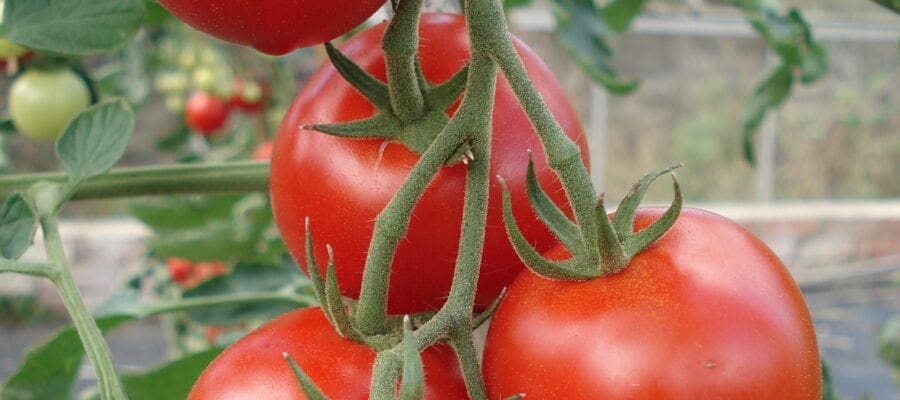Are tomatoes too well-bred for their own good?
A new study led by scientists at Newcastle University has found that tomatoes are getting too well-bred for their own good. The study, published in Agronomy for Sustainable Development, shows that in our quest for larger, redder, longer-lasting tomatoes we have inadvertently bred out key characteristics that help the plant defend itself against predators.
Wild tomatoes were found to have a dual line of defence against whitefly: an initial mechanism which discourages the whitefly from settling on the plant and a second line of defence where a chemical reaction causes the plant sap to gum up, blocking the whitefly’s feeding tube. The team found that whitefly were 80% more likely to settle and feed on commercial tomato plants than on the wild variety.
Enjoy more Kitchen Garden reading in the monthly magazine.
Click here to subscribe & save.
Thomas McDaniel, the PhD student who led the research, says the findings suggest we need to “breed some of that wildness back in” instead of continuously looking for new methods of pest control. “By selecting for certain characteristics we have inadvertently lost some really useful ones.”
Find out more at www.ncl.ac.uk/press/news/2016/02/wildtomatoes/
 Enjoy more Kitchen Garden reading in the monthly magazine. Click here to subscribe.
Enjoy more Kitchen Garden reading in the monthly magazine. Click here to subscribe.
Sign-up to the Kitchen Garden Magazine Newsletter
Enter your e-mail address below to see a free digital back issue of Kitchen Garden Magazine and get regular updates straight to your inbox…
You can unsubscribe at any time.
About the Author
- The Cottage Garden Society ‘Grow In Pots’ For The Malvern Show 9-12 May - 12th April 2024
- Arundel Castle’s Tulip Festival returns - 7th February 2024
- FREE TREES FOR SCHOOLS - 4th January 2024









